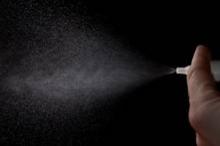If you are a child psychiatrist and haven’t heard of oxytocin for autism, you will.
Parents might soon ask you to put their autistic child on it, if they haven’t done so already, according to Lawrence Scahill, Ph.D.
"There’s a huge amount of interest in oxytocin. If you haven’t heard about this from your families, you will, believe me. It’s a hot topic," said Dr. Scahill, a pediatrics professor at Emory University and the Marcus Autism Center, both in Atlanta.
But "I’m not sure if [the interest] is warranted. There’s much, much more [that needs to be] learned about oxytocin," he said at the American Academy of Child and Adolescent Psychiatry’s Psychopharmacology Update Institute in Washington.
Some parents are getting the peptide hormone from compounding pharmacies and giving perhaps 18-24 IU intranasally to their autistic children daily in the hopes that it will help. But there’s just not enough data to know whether those children will benefit, or even whether oxytocin is safe to give to kids with autism.
Oxytocin plays an important role in child birth and lactation. Most agree it also has a role in emotion regulation and social interaction; the fact that plasma levels are low in autism has led "some to wonder if" supplements will help. "Ten minutes after a [24 IU] intranasal injection, plasma levels double" in autistic people. "They don’t normalize, but they double; the amount that gets through the blood-brain barrier is completely unclear at the moment," Dr. Scahill said (Proc. Natl. Acad. Sci. USA 2010;107:4389-94).
There’s also been "no great" human studies so far on benefit. In most, investigators gave single doses to healthy adults "and then did laboratory measurements of social interaction" with computer or gambling games. "That’s the state of the art," Dr. Scahill said.
Oxytocin seemed to increase trust in some of those studies. In another, a one-time dose of 18-24 IU appeared to slightly boost the ability of autistic boys to identify emotions from eye expressions, but it wasn’t "a very big effect," about a 5% increase in the number of correct answers, he said (Biol. Psychiatry 2010;67:692-4).
At this point, "we know next to nothing" about daily dosing, what parents are most likely to request. "If a parent said to me ‘I want my child on oxytocin,’ I would say we don’t know anything about how to dose it," and "as far as I know, it’s not been given to children younger than 12 in published studies. We don’t know anything about [using it in] young children," Dr. Scahill said.
Upcoming trials of oxytocin for autism should provide answers. Among them is a 5-year, multimillion dollar, National Institutes of Health–funded study that will test daily nasal dosing in 300 autistic children aged 3-17 years old.
In the meantime, Dr. Scahill reminded his audience that "in the 1990s, secretin was going to be the cure for autism" until a series of placebo-controlled studies showed no benefit. "Now it looks like oxytocin is the new cure. Is it really? I don’t know," he said.
For more information, he referred his audience to a recent investigation in the magazine Science (2013;339:267-9).
Dr. Scahill is a consultant for Biomarin and Roche. He also receives research funding form Pfizer, Roche, and Shire Pharmaceuticals.
--BY M. ALEXANDER OTTO


